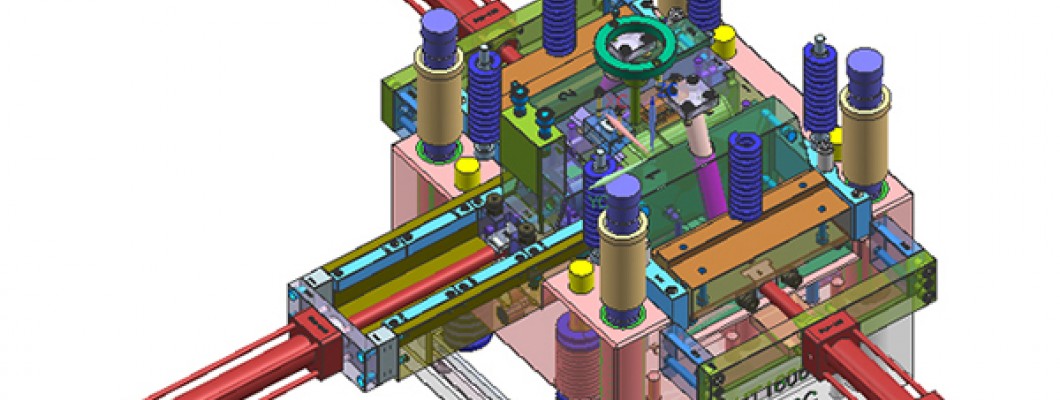15 Sep


01 Shot
The melt usually flows from the nozzle into the nozzle, but with some molds, the nozzle is part of the mold because it extends to the bottom of the mold. There are two main types of nozzles: open shot nozzles and closed nozzles. In injection molding, open nozzles should be used more because they are less expensive and less likely to stay.
If the injection molding machine is equipped with a depressurizing device, this nozzle can be used even with a lower viscosity melt. Sometimes it is necessary to use a closed nozzle, which acts as a stop valve and blocks the plastic shade in the shot cylinder. Make sure the nozzle is properly inserted into the nozzle sleeve. The top hole is slightly smaller than the nozzle sleeve, which makes the nozzle easier to remove from the mold. The hole of the mouthpiece sleeve is 1mm larger than the mouth of the nozzle, that is, the radius of the nozzle is 0.5mm thinner than the radius of the nozzle sleeve.
02 filter and combined nozzle
The impurities of the plastic can be removed by the filter of the extended nozzle, that is, the molten and plastic flow through a channel which is separated into narrow spaces by the insert. These narrow and gaps remove impurities and improve the mixing of the plastic. Therefore, it is possible to use a fixed mixer to achieve a better mixing effect. These devices can be installed between the shooting tank and the nozzle to separate and remix the melt, most of which is the channel through which the melt flows through the stainless steel.
03 exhaust
Some plastics need to be vented in the shooting tank during injection molding to allow the gas to escape. In most cases these gases are only air, but they may be melted moisture or monomolecular gases. If these gases are not released, the gas will be compressed by the melt and brought into the mold, which will expand and form bubbles in the product. To remove the gas before it reaches the nozzle or mold, reduce or reduce the diameter of the screw root to decompress the melt in the shot cylinder.
Here, the gas can be discharged from holes or holes in the shooting tank. The diameter of the screw root is then increased and the melt of the volatiles is directed toward the nozzle. The injection molding machine equipped with this facility is called an exhaust injection molding machine. Above the vented injection molding machine, there should be a good smoke venting device for the flammable burner to remove potentially harmful gases.
04 increase the role of back pressure
In order to obtain a high quality melt, the plastic is uniformly heated or melted and thoroughly mixed. Use the right screw to properly melt and mix, and have enough pressure (or back pressure) in the shooting tank to achieve mixing and thermal consistency.
Increasing the resistance to oil return creates back pressure in the firing tank. However, the screw takes longer to reset, so there is more wear and tear in the injection molding machine drive system. Keep back pressure as much as possible, isolated from air, and also require consistent melt temperature and mixing
05 stop valve
Regardless of the type of screw used, the tip is usually equipped with a stop valve. To prevent plastic from flowing out of the nozzle, a decompression (reverse cable) device or a special shooting nozzle is also provided. If a stop-feed is used, it must be checked regularly as it is an important part of the firing tank. At present, switch-type nozzles are not commonly used because the nozzles are prone to leak plastic and break down. At present, each type of plastic has a suitable type of nozzle.
06 screw back (rewinding)
Many injection molding machines are equipped with screw retracting or suckback devices. When the screw is stopped, it is withdrawn by hydraulic pressure to suck back the plastic at the tip of the nozzle. This device allows the use of an open nozzle. The number of suckbacks may be reduced because entering the air can cause problems for some plastics.
07 screw padding
In most injection molding cycles, it is necessary to adjust the amount of rotation of the screw village, so that when the screw is injected, most of the soft plastic will be left, which ensures that the screw reaches an effective advancement time and maintains a fixed firing pressure. The size of the small injection molding machine is about 3mm; the size of the large injection molding machine is 9mm. No matter how much screw padding value you use, it must remain the same. The size of the screw pad can now be controlled within 0.11 mm.
08 screw rotation speed
The rotational speed of the screw significantly affects the degree of stability of the injection molding process and the amount of heat acting on the plastic. The faster the screw rotates, the higher the temperature. When the screw rotates at a high speed, the friction (shear) energy delivered to the plastic increases the plasticizing efficiency, but at the same time increases the unevenness of the melt temperature. Due to the importance of the surface speed of the screw, the screw rotation speed of the large injection molding machine should be smaller than that of the smaller injection molding machine because the shear heat generated by the large screw is much higher than that of the small screw at the same rotation speed. Due to the difference in plastics, the speed at which the screw rotates is also different.
09 shot amount
The evaluation of the syringe press is usually based on the amount of PS that can be injected per injection and may be measured in ounces or grams. Another sorting system is based on the volume of melt that the injection molding machine can inject.
10 plasticizing ability
The evaluation of the injection molding machine is usually based on the amount of PS that can be uniformly melted in one hour or heated to a uniform melt temperature (in pounds and kilograms). This is called plasticizing ability.
11 plasticizing capacity estimate
To determine whether the quality of the production can be maintained throughout the production process, a simple formula for yield and plasticizing capacity can be used, as follows: t = (total injection shot gX3600) ÷ (plastic injection molding machine kg/hX1000) t is the lowest cycle time. If the cycle time of the mold is lower than the t value, the injection molding machine cannot fully plasticize the plastic to achieve a uniform melt viscosity, so the injection molded parts often have deviations. In particular, when paying attention to the quality of injection molded thin walls or precision tolerances, the amount of shot and the amount of plasticization must match each other.
12 shot cylinder retention time
The decomposition of plastic is based on temperature and time. For example, plastics decompose after being exposed to high temperatures for a period of time; however, in lower temperatures, it takes longer to decompose. Therefore, the residence time of plastic in the shooting tank is very important.
The actual residence time can be determined experimentally. The method is to measure the time required for the colored plastic to pass through the shooting tank. The following formula can be roughly calculated: t=(the nominal volume of the shooting tank gX cycle time S)÷ (shot material) Amount gX300) Please note that some plastics have a longer residence time in the shooting tank than is required for calculation because they can accumulate in the shooting tank.
13 Calculate residence time and importance
As a general rule, the residence time of a plastic on a particular injection molding machine should be calculated. Especially when a large injection molding machine uses a small amount of shot, the plastic is easily decomposed, which is not detectable from observation. If the residence time is short, the plastic will not be plasticized evenly; the retention time will be attenuated by the plastic properties.
Therefore, it is necessary to maintain the same residence time. Method: Ensure that the plastic input into the injection molding machine has a stable composition, consistent size and shape. If there is any abnormality or loss of the parts of the injection molding machine, it must be reported to the maintenance department.
14 shooting tank temperature environment
It should be noted that the melt temperature is important and any shot cylinder temperature used is only indicative. If you have no experience in working on a particular plastic, start with the lowest setting. Usually the temperature in the first zone is set to the lowest value to prevent premature melting and blocking of the plastic in the feed port.
The temperature in the other zones then gradually increases until the nozzle is reached, and the temperature at the tip of the nozzle tends to be slightly lower to prevent dripping. The mold is also heated and cooled. Due to the size relationship of many molds, the mold is also distinguished, but unless otherwise stated, each area should be set to the same size.
15 melt temperature
The nozzle can be measured or measured by air jet. When using the latter for measurements, care must be taken to ensure that hot melt plastics are cleaned without accidents, as hot melt plastics can burn the skin and even corrode the skin. In the injection molding workshop, burns are accidental.
Therefore, gloves and masks should be worn when handling thermoplastics or in case of hot melt plastic splashing. To ensure safety, the tip of the heat control needle should be preheated to the temperature to be measured. Each plastic has a specific melt temperature. To achieve this temperature, the actual injection cylinder adjustment value depends on the rotation speed, back pressure, amount of shot and injection cycle.
16 mold temperature
Always check that the injection molding machine is set up and running at the temperature specified on the record sheet. this is very important. Because temperature affects the surface finish and yield of the molded part. All measured values must be recorded and the injection molding machine checked at the specified time.
17 uniform cooling
Injection molded parts must be uniformly cooled, that is, different parts of the mold must be cooled at different rates so that the entire product is uniformly cooled. Injection molded parts must be cooled at the fastest speed while ensuring that defects do not occur, such as uneven surfaces and changes in physical properties. The cooling rate of each part of the injection molded part must be equal, but it means that the mold is cooled by a non-uniform method, for example, cold water is input into the inner core portion of the mold, and warm water is used to cool the outside of the mold. Syringe Plastic Tolerance This technique should be used when precision flat products or watering nozzles are used to melt large products.
18 temperature and cooling check
Always check that the injection molding machine is set up and running at the temperature specified on the record sheet. this is very important. Because temperature affects the surface finish and yield of the molded part. All measured values must be recorded and the injection molding machine checked at the specified time.

Leave a Comment